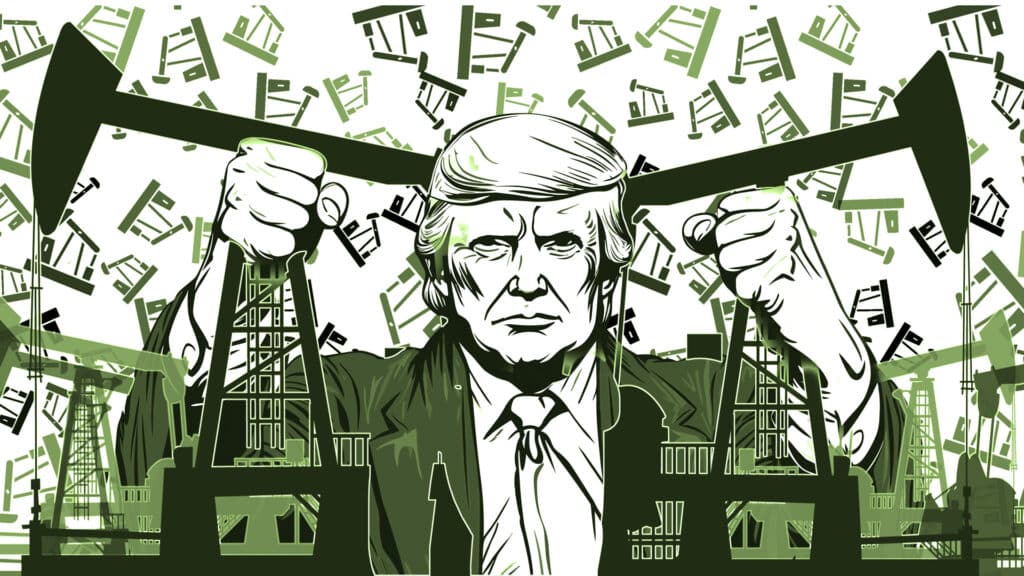Waiting for Trump. Nuclear disarmament and oil as the key agenda of U.S.-Kazakhstani relations
The U.S. President-elect Donald Trump had managed to make many intriguing and unexpected promises during his election campaign, leaving the world to feel that his return to the White House marks the beginning of a new era, a new life for everyone: countries, corporations, politicians, entrepreneurs, the rich and the poor. However, this new reality isn’t going to be good for all.

Hopefully, our government will embrace the idea expressed by American writer Stephen King, whose words are often attributed to Mao Zedong: «The man who senses the wind of change should build, not a windbreak, but a windmill.»
Using economic tools to solve political issues
In the modern world, politics is so economized and economics is so politicized that the common question in our region — whether economics or politics comes first — simply doesn’t make sense. Trump prioritizes foreign policy goals such as ending large-scale wars and conflicts through direct intervention, increasing import tariffs, reinforcing the U.S. dollar as the global currency and establishing the U.S. as an energy superpower.
Exactly from the position of an energy superpower, capable of dropping oil prices (allegedly to $50 per barrel of Brent Crude), Biden pledged to make Russia end its war against Ukraine. This move would deal a painful blow not only to Russia but also to any country whose economy depends on oil exports. However, Trump would likely not be as concerned about this. This is also going to be tough for Kazakhstan. On the other hand, this challenge may push us to diversify the economy and promote its complexity.
Nevertheless, the experts doubt that Trump would dare to make this move. First, an oil price drop will be a gift to China, which remains the largest oil importer. Last year, the country acquired roughly 564 million tons, or 11.28 million barrels a day, setting a historical record. Even though China reduced oil acquisition and boosted its production, the country still remains a main importer. Second, using the oil price reduction as a peacemaking instrument may eventually fail.
An increase in import duties, especially on Chinese goods, is likely to happen. We saw this during Trump’s first term when he aimed to address the trade imbalance with China. In 2017, Chinese imports to the U.S. totaled $505 billion, while U.S. exports to China were only $30 billion. In January 2018, Trump began raising tariffs on Chinese imports, and China responded with similar measures, including sharply reducing purchases of American oil and liquefied gas. As a result, global trade growth slowed from 4.7% in 2017 to 3.3% in 2018. The trade war ultimately ended in 2019 with peace accords and concessions from China on several issues. In 2023, U.S. imports from China reached $575 billion (according to U.S. figures), while American exports to China totaled only $148 billion, with overall imports at $427 billion.
Eternally relevant topic
Of course, Kazakhstan, like any other country that could be impacted by Trump’s bold moves with oil prices, will seek to protect its interests, including through negotiations with the U.S. On a working level, Astana and Washington, D.C., are discussing their positions on international and bilateral issues within the framework of the Joint Statement on the United States-Kazakhstan Enhanced Strategic Partnership Dialogue. This dialogue was launched in January 2018, during Trump’s first term, following President Nazarbayev’s visit to the U.S., where the «United States and Kazakhstan: An Enhanced Strategic Partnership for the 21st Century» statement was adopted.
It’s likely that officials in Kazakhstan’s Ministry of Foreign Affairs have reviewed this document and found that some aspects are outdated (for example, the change in government in Afghanistan), while in terms of others it still remains relevant, in particular, the points regarding «Kazakhstan’s leadership in international efforts to prevent the spread of nuclear weapons,» «ensuring the integrity of contracts» and «consultations on sanctions to avoid unintended consequences for Kazakhstan’s economy.»
Although the dollar exchange rate is a major topic in Kazakhstan’s economic discussions, the American side has never addressed this issue with Kazakhstan and is unlikely to do so now. What will be of greater significance to them are our positions on nuclear weapons and oil.
In the realm of strategic security, the United States is already facing significant challenges. The National Security Strategy, adopted by Donald Trump in December 2017, identified four key U.S. rivals — China, Russia, Iran and North Korea — each of which pose a different level of nuclear threat. Six years later, those threats have only grown.
On Oct. 31, Pyongyang successfully tested its new intercontinental ballistic missile. The launch was vertical, as North Korea is a relatively small country and does not cooperate with others on missile tests yet. According to Japan’s Ministry of Defense, which closely monitors North Korea’s missile development program, the missile reached a height of 7,000 kilometers. This suggests that, if launched at a normal trajectory, it could potentially exceed 14,000 kilometers, hypothetically reaching targets across the United States.
It’s high time for Donald Trump to reflect on his meetings with Kim Jong Un during his first term. Although these meetings took place in a cordial atmosphere, their practical outcomes were insignificant. What’s particularly interesting for us is that, shortly before the first summit, former Senators Sam Nunn and Richard Lugar advised Trump to consider Kazakhstan’s experience for establishing a roadmap for denuclearizing the Korean Peninsula. Kazakhstan voluntarily gave up the world’s fourth-largest nuclear arsenal and it’s likely that Kazakhstan’s consistent anti-nuclear policy will be called upon again this time.
Iran does not yet have nuclear weapons, but it is capable of developing them fairly quickly. This possibility could become more likely following Israeli strikes against Tehran-aligned Hezbollah, not only in Lebanon and Syria but within Iran itself. As an alternative to pursuing a nuclear bomb, Iran could be offered a return to the «nuclear deal framework,» involving the complete lifting of international sanctions in exchange for refusal to build nuclear weapons. It’s worth noting that in 2013, Almaty hosted negotiations on Iran’s nuclear program, and later, following the deal’s conclusion, the IAEA Low Enriched Uranium (LEU) Bank was established in Kazakhstan.
Mutual assured destruction used to be the basis of the international strategic security structure, established once with the participation of Moscow and Washington, D.C. However, thanks to the mutual actions undertaken by both sides, there’s almost nothing left of this system. The New START expires in February 2026, while Russia terminated its participation in the arrangement in 2023. May Kazakhstan be a mediator at the negotiations on the New START extension? We believe it’s worth giving a shot.
China is rapidly expanding its nuclear arsenal and halted arms control consultations with the U.S. in July, following American arms sales to Taiwan. While Kazakhstan’s position in favor of resuming these negotiations is unlikely to influence the situation anyhow, even a symbolic stance holds value in this context.
The one who hinders us will help us
When it comes to oil, all American investments in Kazakhstan have always focused on oil production. Chevron is the largest investor, holding a 50% stake in Tengizchevroil, the country’s biggest oil producer, as well as an 18% share in the Karachaganak oilfield and 15% in the Caspian Pipeline Consortium (CPC). ExxonMobil has a 25% stake in Tengizchevroil, 16.8% in the North Caspian Operating Company (Kashagan oilfield), and 7.5% in the CPC.
Last year, President Kassym-Jomart Tokayev reflected on the contributions of American oil companies to Kazakhstan’s economy in his speech at an official ceremony commemorating the 30th anniversary of Tengizchevroil’s operations in the country:
«Tengizchevroil accounts for one-third of Kazakhstan’s total oil production. Over the past 30 years, the company has invested $70 billion and contributed more than $160 billion to the national budget. Additionally, 70% of the services and goods the company utilizes are sourced from local suppliers, and over 95% of its workforce consists of Kazakhstani citizens.»
The president also marked the completion of the Tengiz oilfield expansion project, which will boost Kazakhstan’s oil production by an additional 12 million tons, solidifying its position as one of the world’s largest oil suppliers.
American oil and gas companies, including Chevron and ExxonMobil, were among Donald Trump’s main sponsors during the recent presidential election. They are part of the group tasked with making America great again and are set to receive significant support from the new boss of the White House. Once again, they are becoming a connecting bridge between Kazakhstan and the U.S. In this context, the demands from some political parties and public associations to disclose the content of production-sharing agreements seem, at the very least, inappropriate. The phrase «inviolability of contracts» is as relevant today as ever.
The author’s opinion does not necessarily reflect the views or positions of the editorial board.

